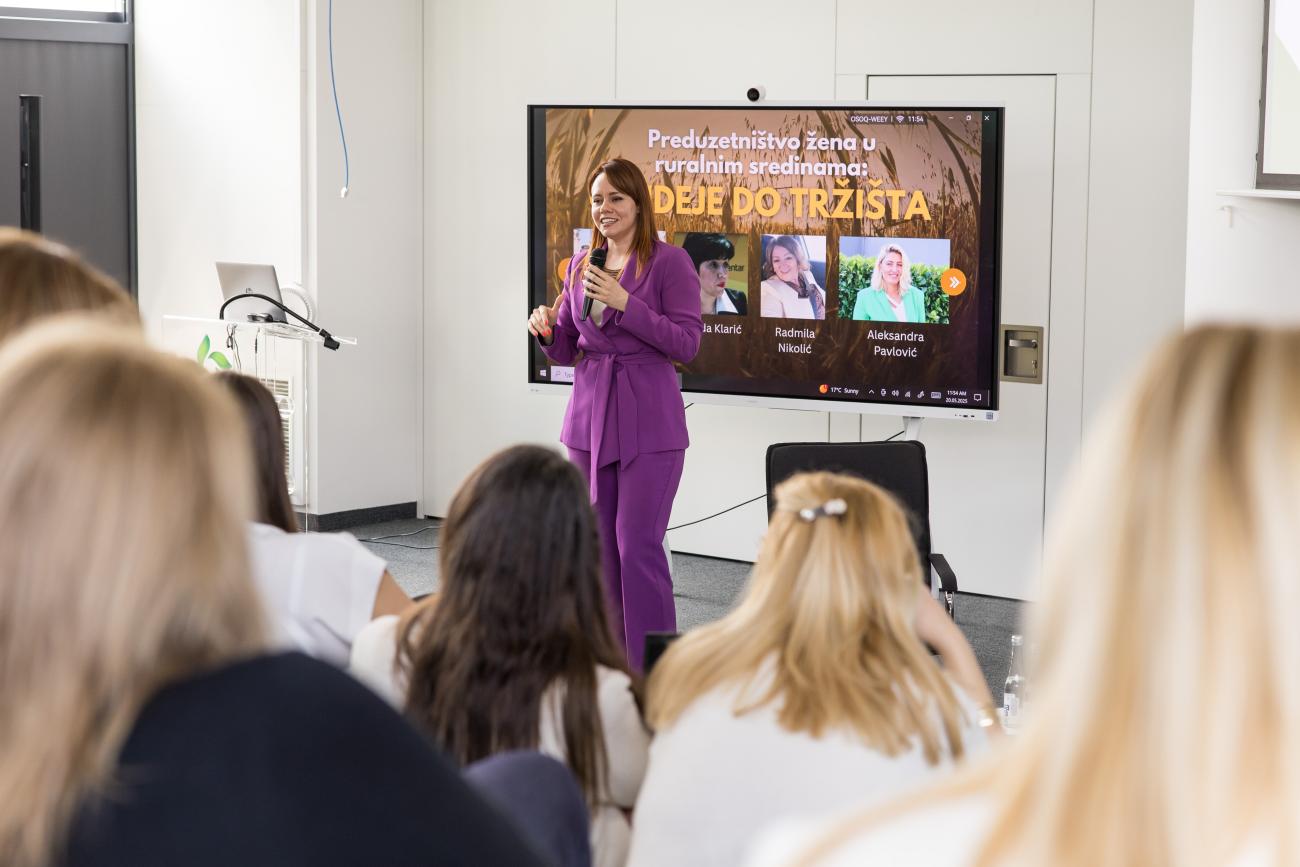Women from rural areas in Serbia build sustainable communities every day, not only by working the land and feeding their families, but also by launching businesses, preserving tradition, and fostering innovation where few expect it. Behind each of these successes, however, lies a struggle with invisibility, unequal conditions, and limited access to resources. These challenges and ways to overcome them, were at the heart of the recent subnational dialogue on empowering women in Serbia’s agri-food systems.
Organized in Novi Sad through the collaboration between the BioSens Institute and the UN Women Serbia Office, the subnational dialogue brought together representatives of institutions, civil society, international organizations, and academia. The event aimed to strengthen the role of women in rural communities, promote inclusive and sustainable development, and enhance multisectoral cooperation in the implementation of the National Guidelines for the Transformation of Food Systems.
The dialogue was opened by Jelena Jojić from the BioSens Institute, with additional remarks by Lorenza Jachia from the UN Resident Coordinator’s Office in Serbia and Milica Trajković, Head of the Center for Innovation and Business Development at BioSens. The speakers highlighted the importance of integrating a gender perspective across all development policies and projects related to agriculture and sustainability.
From idea to market: Women’s rural entrepreneurship in the spotlight
The central segment of the programme featured a panel discussion titled “Women’s Entrepreneurship in Rural Areas – From Idea to Market,” where female entrepreneurs shared their personal experiences, challenges, and recommendations for improving the position of women in the agri-food sector.
Panelists Sanida Klarić, Radmila Nikolić, Aleksandra Pavlović, and Aleksandra Radivojević spoke about their entrepreneurial beginnings, often driven by necessity, and how they went on to build sustainable and authentic brands through perseverance, continuous learning, and hard work.
They emphasized the discrimination they faced solely because of their gender yet remained committed to their goals thanks to access to education, support networks, and community solidarity. The importance of relying on local resources and strong female role models from within their own communities was underlined, as was the need for increased access to information on available funding and the protection of women’s economic rights. A particular concern raised was women’s lack of ownership over property and agricultural holdings, which often excludes them from inheritance and limits their access to social protection systems.
The concluding message of the panel was clear: while Serbia has a solid legal framework, its delayed implementation continues to hinder the potential of rural women to become true agents of change and development in their communities.
Partnerships for Sustainability
The dialogue was part of the “From Seed to Sustainability – Food Systems for All” initiative, led in Serbia by the UN Resident Coordinator’s Office and jointly implemented by FAO, UNEP, and UN Women, with the support of UNECE and in partnership with the Ministry of Agriculture, Forestry and Water Management and other national stakeholders.
The initiative is financially supported by the Joint SDG Fund, with contributions from the European Union and more than fifteen governments, including Belgium, Denmark, Germany, Ireland, Italy, Luxembourg, Monaco, the Netherlands, Norway, Poland, Portugal, the Republic of Korea, Saudi Arabia, Spain, Sweden, and Switzerland.




